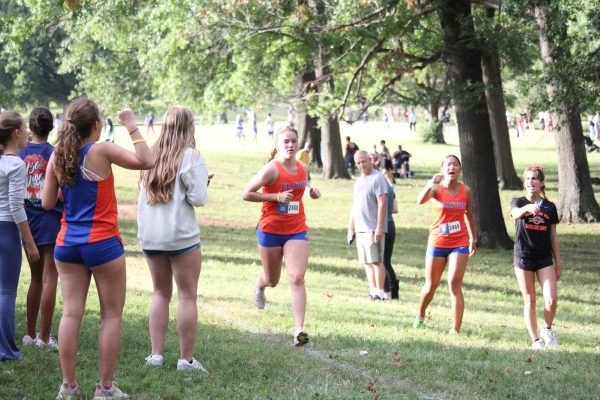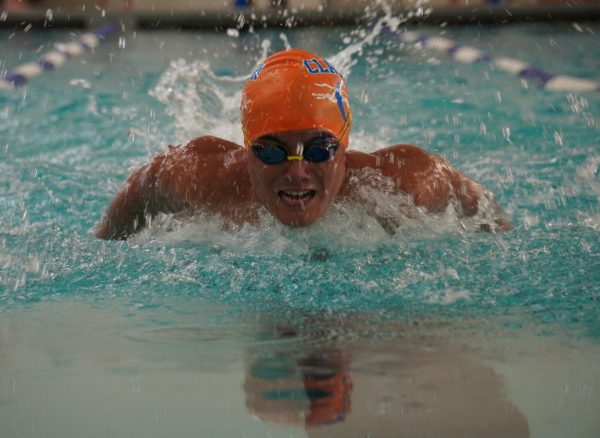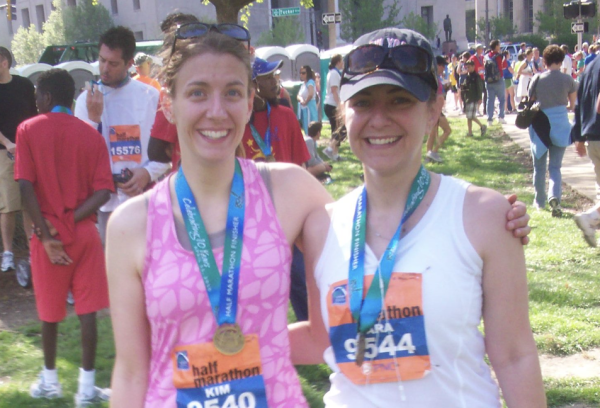Going for the Gold
Ray “Ricky” Armstead said, laughing. “I did it.” On the world’s biggest stage, Ray Armstead, parent of CHS freshman Ray Armstead Jr., along with three other track and field teammates accomplished what is often considered the greatest feat of any athlete’s career: representing the United States of America. Armstead competed in the 1984 summer Olympics in Los Angeles.
But Armstead didn’t always want to compete in track and field. In fact, he played basketball throughout most of his high school career and only decided that he wanted to become a runner during his senior year.
“Actually, I didn’t want to run track at all,” Armstead said. “Back then, running was a figure of punishment for any sport … [in] soccer, if you do bad, they make you run. [In] basketball, if you do bad, they make you run. And for some reason, when I was playing basketball, when they would make us run lines or [do] suicides, I [thought], ‘I like this.’”
In 1984, the Summer Olympics were held in Los Angeles, and Armstead said he was fated to become an Olympic runner.
“All of the chips fell in the right place,” he said. “Everything fell just right.”
But the road to the Olympics was definitely not paved in gold. According to Armstead, training to become an Olympic athlete was extremely difficult.
“Oh my goodness,” he said. “Unbelievable. Weight training, swimming, a lot of running, cross training. Six to eight hours a day. A lot of training, a lot of training. While you were sleeping, I was training,” Armstead said.
Just as things seemed to be going well for Armstead, an ill-timed injury one year prior to the trials to become an Olympic runner staggered his chances of earning a trip to the Games the following summer.
“I got hurt,” Armstead said. “So I got redshirted. [But] when ‘84 came it was just right, I was old enough, and the trials came at the right time,” he continued. “Everything just worked out.”
While Armstead was pushing his way onto the American team, political strife stifled relations between several Eastern BLOC countries (USSR, Poland, East Germany and Hungary) with the West. This resulted in a boycott of the L.A. 1984 Olympics, a result similar to the United States response to the 1980 Games in Moscow.
But Armstead was essentially unaffected by the international turmoil, although the pressure of the competition was an entirely separate issue.
“I was cool as a cucumber, during the race,” Armstead remembered. “You know, during the preliminaries. But I remember seeing this one guy [chanting], ‘Go United States! Go United States!’ And at that particular time, I looked around [the stadium], and there were 100,000 people … and I was like, ‘Oh my God, I can’t believe this.’”
Despite the pressure, Armstead’s hard work paid off in the end.
“We beat them,” Armstead said, “In [the 1984 Olympics], I beat them.”
In the 4 x 400 relay, Armstead and his teammates, Alonzo Babers, Antonio McKay and Sunder Nix succeeding in taking gold. They finished with an incredible time of 2:57.91, a four second improvement, missing the world record by only a few ticks. The British and Nigerian squads earned silver and bronze, respectively.
Remembering what it took to get to this point, Armstead said, “You know, I was different from a lot of other people at that time because I came from a Division II school … when you think about making the Olympics or making the NBA, you look at Division I guys.”
With years of experience as a successful runner under his belt, Armstead also wanted to extend a bit of expert advice to high school students aspiring to possibly become world-class athletes.
“You know, you have to be very dedicated, committed, that’s the thing,” Armstead said. “You have to do what you need to do, [and] you have to pay attention to detail.”
Through his dedication, commitment and attention to detail, Armstead was able to go from high school basketball player to an Olympic Gold medalist runner, evidence that dedication truly does yield success.
A $50 or more donation includes a subscription to the Clayton High School Globe 2024-2025 print news magazine.
We will mail a copy of our issues to the recipients of your choice.
Your donation helps preserve the tangible experience of print journalism, ensuring that student voices reach our community and that student democracy thrives.

Lawrence Hu is currently a sophomore at Clayton High School and first year editor for The Globe. He is an avid writer, photographer and distributer. While rival editor Max Steinbaum...









